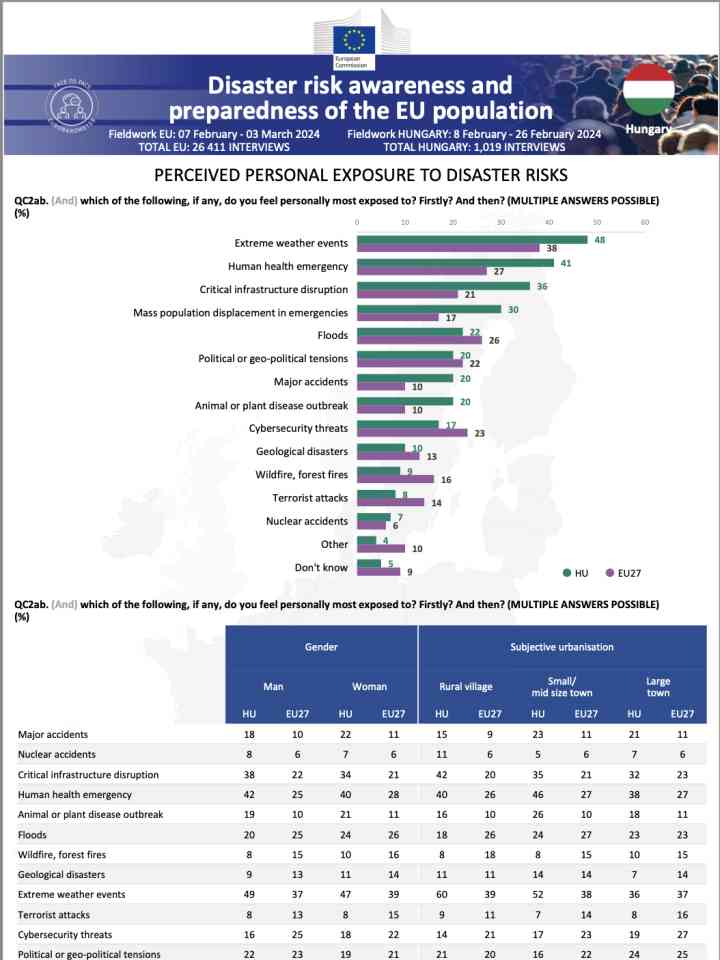Disaster risk awareness and preparedness of the EU population: Hungary
The survey on disaster risk awareness in Hungary reveals that citizens feel most vulnerable to human health emergencies (48%), followed by cybersecurity threats (41%) and critical infrastructure disruptions (36%). Notably, people in rural villages perceive themselves as more vulnerable to disasters than those in urban areas, a distribution that differs from other EU countries. Hungarians demonstrate lower levels of disaster risk awareness and preparedness compared to other EU citizens, with fewer people taking steps to learn about or act on disaster risks. The survey also highlights that accessing risk information is challenging for many. Their main sources of information are emergency management agencies, followed by family and friends, and national media. Additionally, there is a low expectation among Hungarians of relying on public authorities in the event of a disaster. This survey underscores significant gaps in public information, preparedness, and the quality and availability of public services, pointing to a clear need to address these gaps and empower Hungarian citizens to better manage disaster risks.
This serial survey assesses the awareness of EU citizens about the disaster risks that could affect them, their preparedness to face various disaster risk scenarios, and the reliance they place on a range of actors in disaster situations. The survey also explores the engagement of EU citizens in voluntary work to increase disaster resilience.
Explore further
